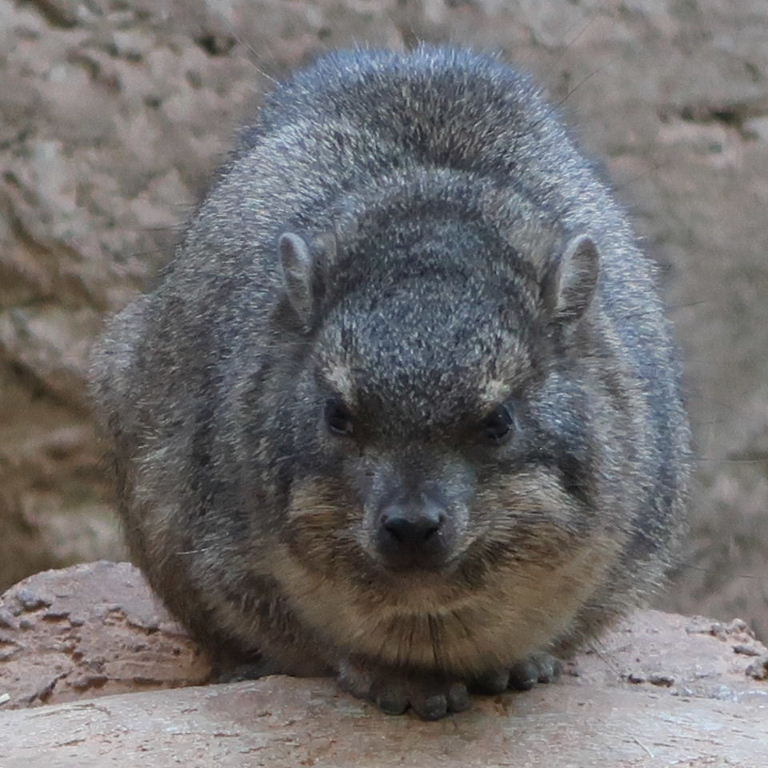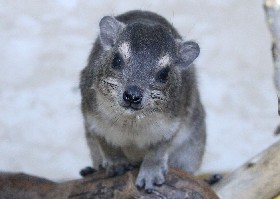Rock Hyrax Procavia capensis


There is one species of Rock Hyrax (the Rock/Cape Hyrax), one Bush Hyrax (sometimes called the Yellow-spotted Rock Hyrax)
and four species of Tree Hyrax. Although all look like rodents, they are, surprisingly, related to elephants, elephant shrews and sea cows.
The Rock Hyrax, whose genus name "procavia" refers to its resemblance to the (rock) cavy or a large guinea pig, is native to rocky habitats
of Africa (mainly sub-Saharan) and Arabia.



Like elephants, Rock Hyraxes have flattened, hoof-like toenails at the end of their foot instead of the slender
toes and claws of rodents. They share several other physical traits with elephants and sea cows, such as tusks from
incisor teeth rather than canine teeth.



Female and young hyraxes live in family groups with a dominant male; bachelor males are solitary.
Foraging in groups, like meerkats, they have a look-out to sound an alarm for predators.



Like some primates and dolphins/whales, Rock Hyraxes have a complex vocabulary whereby different
calls and sounds represent specific dangers, predators, social interactions, etc.






